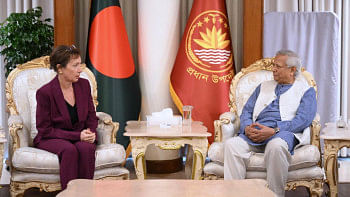Ignoring warnings, Nawaz Sharif to start for home today
Despite concerns about his security, former prime minister Nawaz Sharif was adamant that he will leave for Lahore via the historic Grand Trunk (GT) Road this morning.
"I will not wait for the situation to calm down because I have every right to go home," he told reporters at the Punjab House on Tuesday, referring to the recent bombing in Lahore and the heightened security threats there.
Also READ: Remove Nawaz from party helm
Reports suggested that his brother Punjab Chief Minister Shahbaz Sharif, Interior Minister Ahsan Iqbal and his predecessor Chaudhry Nisar Ali Khan were among several close figures who warned the ousted PM against proceeding to Lahore by road.
Sharif is said to have ignored their advice, but sent his wife Kulsoom and daughter Maryam to Lahore a day before his own departure.
The former prime minister is expected to leave his Punjab House camp office around 10am on Wednesday, and will enjoy the protocol accorded to a sitting prime minister as he travels through the twin cities to Rawat, the first stop on his decidedly political journey on the GT Road.
Speaking to journalists, he said he had never tried to create anarchy in the country - be it the days of the Pakistan Tehreek-i-Insaf sit-in outside parliament, attempts to lock down the capital or matters relating to the Panama Papers case.
He said a petition seeking a review of his disqualification would soon be filed before the Supreme Court with the plea that a larger bench hear the case.
Lamenting that none of the 18 prime ministers in the country's history had ever completed their constitutional term in office, he said that just three dictators had ruled the country for decades.
He said the Constitution was abrogated again and again, but the judiciary not only legitimised military rule every time, but even went to the extent of giving military dictators the right to amend the Constitution at their whim.
"Countries cannot be run like this," he remarked, saying this was a time for grand debate, both inside and outside parliament, to find a way forward.
He blamed lack of continuity as the major reason for the country lagging behind in terms of economic progress.
He regretted that he was once removed as prime minister under the now-defunct Article 58(2)(b) of the Constitution, termed a hijacker by General Musharraf and had now been disqualified by the judiciary on an allegation never mentioned in the petition.
"Why should I have disclosed a salary I never withdrew from my son's company?" he asked, adding that a prime minister elected with the votes of 200 million people should not have been treated in such a way.
Sharif avoided answering questions on the chances of him returning as prime minister, but indicated that he would remain active in politics, saying confidently that his innings was not over.
"When I was sent into exile by Musharraf, many believed that was the end of my political career. But it did not happen then, and it will not happen now."
Talking about the case against him, he claimed that the Panamagate petition was first rejected by the registrar office as frivolous, but was admitted for hearing a few weeks later.
He said the composition of the Joint Investigation Team (JIT) was controversial, adding that the way they worked was known to everyone.
He told reporters he was advised not to appear before the JIT, but that he had decided to go since his hands and conscience were clean.
He also claimed that by filing references against him on matters that related to his family business, a new precedent was being set.
Another deviation from normal practice was that a judge was being appointed to supervise the cases, which meant that a sword would keep dangling over the National Accountability Bureau.
Drawing a comparison between the democratic dispensation and military rule, he said that all key issues facing the country were resolved by politicians -- from the repatriation of prisoners of war from India to the nuclear programme -- adding that wars were only fought under dictatorships.
He avoided pointing a finger at the military establishment when journalists asked him to disclose who was conspiring against him. When asked if the army was angry with him over foreign policy issues, he said: "It would be appropriate if we continued to focus on the matter at hand."
Asked if he would ask Prime Minister Shahid Khaqan Abbasi to start the process to issue red warrants for Gen Musharraf, Sharif held the judiciary responsible for allowing the former military ruler to proceed abroad.
When asked if he had taken up the matter with then army chief General Raheel Sharif after Musharraf revealed he had been facilitated by the army, he said that such matters were a part of the record and one day, those responsible would be held accountable.

 For all latest news, follow The Daily Star's Google News channel.
For all latest news, follow The Daily Star's Google News channel. 




Comments